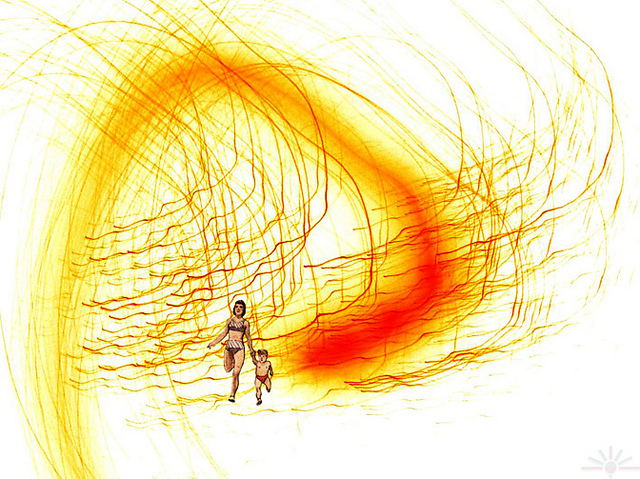
“Bye!” My Anokhi dress swinging on my hips, my nails done just right, I am stepping into the driveway and towards my red car. I don’t notice the roses blooming or the colour of the sky. I am focused on driving towards Shakti Shalini, a women’s shelter in South Delhi that I often visit, sometimes to help fundraise through the American Women’s Association’s giving programme called Outreach, or to speak with the women who live in the shelter. Today, I am speaking with some of the women, and we are sharing stories. They tell me about their experiences of abuse, violence, and rape, and I listen sympathetically. My expensive watch glints in the sun as I play with their toddlers, running barefoot in the courtyard. I am removed from this – my children are clean, safe, and well-fed and my life is in control; I am an expat wife with everything going for her.
This was my life ten years ago until the rug was pulled from under my feet and I realised that I was just like the women at the shelter. I had been sexually abused for years, and I was a victim too. But social conditioning and privilege often numb a person from realising that they are part of the circle that they are helping, and that they may have more experiences in common than they had thought. We were raised with the idea that on the surface, women who have survived abuse may look a certain way or may come from a less privileged background, and are perhaps not as educated. We, the “educated” and “progressive” class, were not the women who took abuse lying down; we would walk out and be independent at the first slap.
And yet. In my own case, I was married for twenty years to a man with whom I raised four boys. On the surface, I had a fairy-tale life: the handsome white husband, the foreign holidays, the glasses of wine, watching the sun set as our children frolicked on sand, a nanny often in attendance. I was the girl in the half sun, the trophy wife, always looking just right, my husband’s hand protectively placed on the small of my back. The stories of being woken up in the middle of the night for unwanted sex were never shared because that is just what marriage is all about, right? Marital rape was not a part of my vocabulary except when I used it to discuss what may have happened to someone else. Control and thinly veiled threats in the guise of love were never seen as anything other than a husband who just wanted to look after his family. And so it went.
It took a very painful divorce, the kidnapping of my four sons (my children were taken by my ex-husband without court permission to the US and I have not seen the younger three since 2012), involuntary incarceration in a psychiatric facility, the rebuilding of my life through poverty, homelessness, and trauma, and healing through creativity and advocacy, to realise that the women I used to ‘help’ were no different than me. When you accept your history and own the past, I believe it sets you free in many ways. You start to heal, you start to reclaim your own body and spirit, and you become fearless. Because when you realise all that you have gone through and still survived, you know you can take on anything.
In addition to healing from sexual trauma, which took a lot of work, the most joyful part of this journey has been a discovery of my own sexuality. When you are in a joyless marriage and sex becomes just another chore, you start to dread it. Enjoyment and fulfilment are not even considered and you end up using the time to make shopping lists in your mind when you are in bed with your partner. In my own case, although my ex-husband was very goal-oriented and would want to please and pleasure me, I think my body had been revolting for years and the sex would make me bleed and vomit. My body was telling me all I needed to hear, if only I would listen. As I started living alone and dating again, the discovery of all that my body was capable of set me free from sexual trauma, and I started to heal from the inside out. To discover that my body was capable of enjoying sex, something I used to hate, was a revelation. To discover that I could voice what I enjoyed and what I didn’t, set me free. And in fact, just today, an old boyfriend sent me a text saying he knows I enjoy sex too much to be single again!
Memory, conditioning, social class, family – these are all traps sometimes. When you realise that labels, ownership, family and duty bind you into behaving in ways that keep society running like it does, that they are Foucauldian constructs that you need to challenge if your body and spirit are broken, that is when you can start to come into your own and claim your own being. Memory plays a large part in how we approach our life ahead. By accepting your own story, and then rewiring your mind through healing from a painful past, you can reclaim yourself. The time is now. All you have is this one breath. And if you’re not breathing easy, start asking yourself why. And come home to yourself.
Cover Image: (CC BY 2.0); Flickr